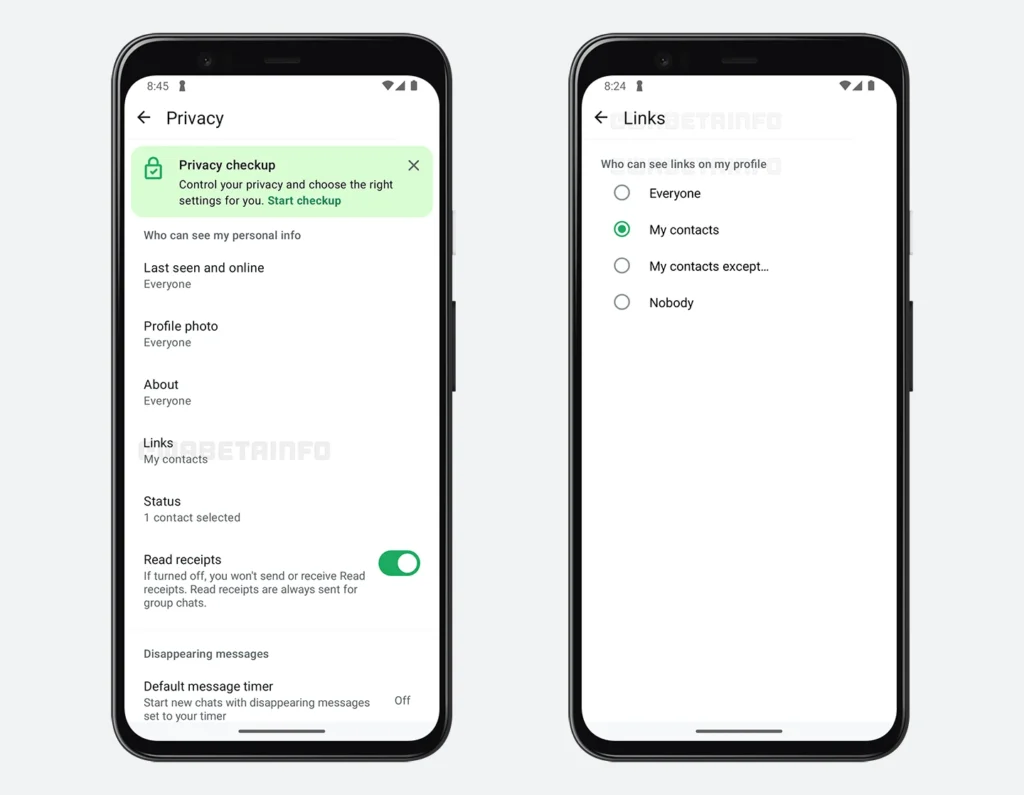Chat Privacy Controls
WhatsApp is currently developing an advanced chat privacy feature aimed at offering users greater control over their conversations and limiting message sharing to ensure enhanced protection of personal data.
According to a recent report by WABetaInfo, this upcoming privacy tool was spotted in the latest WhatsApp beta for Android, version 2.25.10.14, available through the Google Play Store.
This feature, expected to be rolled out in a future update, will bring a set of new privacy-focused options to the popular Meta-owned messaging platform.
Among its primary capabilities, the advanced chat privacy feature will allow users to prevent shared media from being automatically saved to their device’s gallery — a setting currently applied only to disappearing message chats. The extension of this control to regular chats indicates WhatsApp’s growing emphasis on user privacy.
In addition to media restrictions, the update introduces limitations on exporting entire chat histories. Users who enable this advanced privacy mode will prevent others from exporting conversations that contain their messages. This move is designed to curb unauthorized data transfers and help users maintain greater control over their personal exchanges.
Interestingly, the feature will not block the forwarding of individual messages to preserve the app’s usability. However, users participating in a conversation where the advanced privacy setting is enabled will also be restricted from interacting with Meta AI, further safeguarding sensitive or private discussions.
As of now, WhatsApp has not incorporated any screenshot detection mechanisms, which might come as a surprise to some privacy-conscious users.
However, the platform’s decision appears to be based on practicality. Since users can still use WhatsApp Web or external tools to capture screen content, enforcing screenshot detection would offer minimal real-world protection and could be easily bypassed.
It’s important to note that these new privacy protections will remain optional. Users will have the flexibility to toggle the feature on or off, and any restrictions will be lifted once the setting is disabled.
As development progresses, WhatsApp may enhance this feature with additional layers of protection, depending on user feedback and further testing phases. This initiative aligns with WhatsApp’s broader goal of maintaining user trust and staying ahead in the privacy-centric digital communication landscape.


